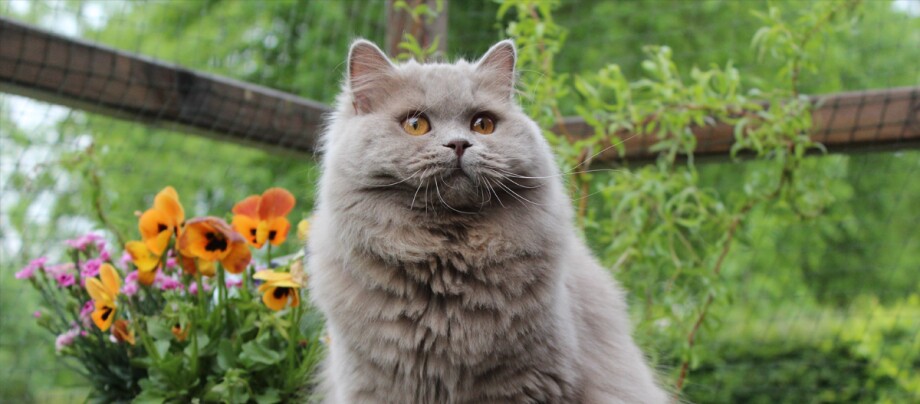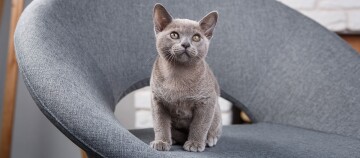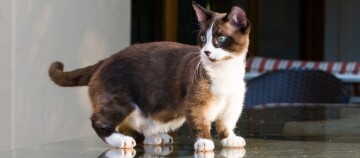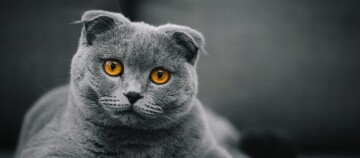British Longhair “Highlander” - Cool Cat Personality with a Love for Water
01.01.2024 - Reading time: 3 minutes

The British Longhair is the long-haired variety of the British Shorthair. There is no difference in character between the two breeds. They are extremely engaging, people-oriented companions, who are very well suited for families with children if they are allowed to get used to them. Due to their calm, easy-going nature, they get along with everyone who approaches them in a friendly manner. This island beauty loves her people, with whom she builds up a firm bond.
NewsletterBritish Longhair
Breed | British Longhair (Semi-Longhair Cat) |
Origin | Great Britain |
Size | average-sized to big |
Weight | 4 to 5.5 kilograms (female), 5 to 7.5 kilograms (male) |
Physique | muscular; strong; stocky; shoulders, chest and back broad |
head shape | round, short neck, strong nape, childlike pattern, full cheeks |
Eyes | green, blue, golden |
Coat and colour | plush coat due to lots of undercoat, over 300 colours |
Coat care | regular brushing |
Nature | curious, sociable, people-oriented, easy-going, intelligent |
Special features | not afraid of water |
Owning | not as an only cat; can be kept in flats, but also happy for a secured balcony or free access |
British Longhair: Character
The British Longhair has a friendly and balanced nature. She loves her humans dearly and also likes to insist on being petted by them. At the same time she is very intelligent, playful and curious, but has only a moderate urge to move, which she can live out well with play and climbing opportunities when kept indoors. She prefers to stay with her family and wants to be kept busy. Due to her untypically high stress tolerance, the British Longhair is well tolerated by other cats, children and, with appropriate socialisation, dogs.
Keeping and care
Those who believe that the British Longhair is in need of special care due to its semi-long coat are mistaken. Regular brushing sessions are nevertheless obligatory for the British Longhair and also strengthen the bond between human and cat. Apart from that, this friendly cat needs the undivided attention of its humans and wants to be kept busy with play and cuddling sessions. Even if the British Longhair can be kept purely indoors, it will be happy to have a secure balcony and will also gladly make use of the opportunity to go outdoors. However, she usually does not stray too far from her home, because after all she loves her family and cherishes her home according to the motto “My home is my castle”.
Colours of the British Longhair
The British Longhair is available in more than 300 colours. The variety of colours is as great as in the British Shorthair and ranges from black, white and brown to the thinnings Fawn and Lilac and black and white or tricoloured cats. The most important colour varieties are: Colourpoint, Chinchilla, Torby, Tabby, Tortie and bicoloured, i.e. white in combination with any other colour. The coat of the British is semi-long with much undercoat, to which it owes its plush appearance.
British Longhair: History
The British Longhair has not existed as a breed for very long, although kittens with semi-long hair were regularly born to the British Shorthair. This is due to the fact that Persian cats, which carry the gene for a longer coat, have always been crossed with the British Shorthair. However, it may be that this genetic predisposition only shows in litters of much later generations, as in the case of the long-haired British Shorthair. In the past, longhaired kittens were not welcomed by breeders and were given away to fanciers. Even today, many umbrella organisations refuse to recognise the expressive British Longhair as a separate breed.
British Longhair: Special features
In addition to its high stress tolerance, the beauty, also called “Highlander”, has another rather untypical characteristic for cats: it likes to play with water.





